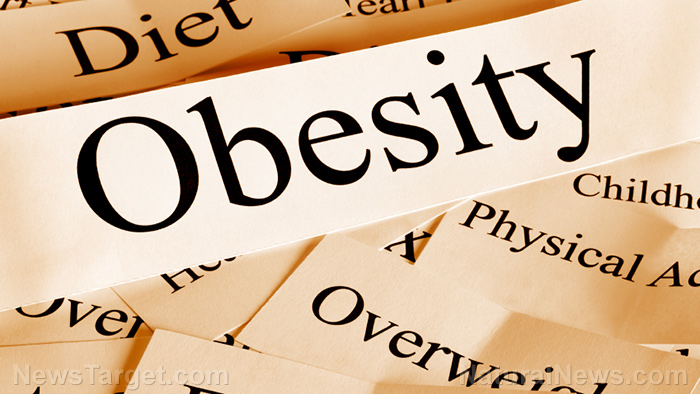Reset your gut hormones with a vegan diet
05/31/2019 / By Edsel Cook

A study conducted by researchers from the Institute for Clinical and Experimental Medicine in the Czech Republic found that plant-based foods can increase the production of good hormones in the gut. In fact, a single vegan meal can improve a person’s health in many ways.
A good diet should be able to maintain normal blood sugar levels, allow a person to keep a healthy weight, and ensure that he or she feels full and sated after every meal. As researchers found in their study, which appeared in the journal Nutrients, a vegan diet can do all of these things. And these benefits can be attributed to an improvement in gut hormones.
Gastrointestinal hormones play a significant role in regulating glucose metabolism, the process by which the body breaks down sugar into usable energy. They can also improve insulin sensitivity and lower blood glucose levels.
Gut hormones dictate a person’s level of satiety after a meal. Because of this, eating foods that boost the production of good gut hormones can help a person control his or her weight. (Related: Following a plant-based or vegan diet can reduce risk factors of Type 2 diabetes, research indicates.)
Eating vegan meals can increase gut hormones of healthy, obese, and diabetic people
In their study, the Czech researchers evaluated the effects of different types of meals on the gut hormone levels of adult males. These participants were either healthy men, males suffering from obesity, or men who have been diagnosed with Type 2 diabetes.
The participants randomly received one of two meals that contained the same amount of energy and macronutrients. One meal consisted of processed meat and cheese. The other was a vegan meal that included tofu.
The researchers used a visual analog scale to evaluate the satiety of the participants after eating. They also measured the levels of the gut hormones amylin, glucagon-like peptide -1, and peptide YY in the blood of the participants immediately after the meal and 30, 60, 120, and 180 minutes later.
Their results showed that consumption of a vegan meal increases the levels of gut hormones, regardless of whether a person is healthy, obese, or has Type 2 diabetes. Furthermore, the improvements in hormone concentrations caused by the vegan meal exceeded those found in the participants who ate processed meat.
Plant-based foods contain dietary fiber that makes them more filling
In addition, the researchers found that the participants who consumed a vegan meal experienced an increase in the three beneficial gut hormones immediately after eating. These participants also reported feeling full and satisfied.
The researchers attributed their satiety to the large amount of dietary fibers present in plant-based foods. These fibers are more difficult to break down than processed carbs and proteins, so they slow down the digestive process and make people feel full longer.
Eating foods rich in dietary fibers can also reduce the risks of heart disease and metabolic disorders. A study conducted by researchers from the University of Kentucky provides evidence that supports the health benefits of consuming dietary fiber.
For people who are interested in following a vegan diet, experts recommend starting with small portions and changing things slowly. Every week, replace a portion of your meals with plant-based foods. Once your body gets used to the changes, you can start switching to full-blown vegan meals.
Sources include:
Submit a correction >>
Tagged Under:
alternative medicine, anti-diabetes, anti-obesity, blood sugar, carbohydrates, clean food, dietary fiber, digestion, digestive process, disease treatments, fight diabetes, fightobesity, food cures, food is medicine, functional foods, glucose metabolism, gut health, gut hormones, healthy food, healthy weight, heart health, hormones, insulin sensitivity, metabolic disorders, natural cures, natural medicine, plant-based foods, prevention, processed meat, research, satiety, slender, Type 2 Diabetes, vegan diet, vegan meal, weight loss
This article may contain statements that reflect the opinion of the author
RECENT NEWS & ARTICLES
COPYRIGHT © 2017 FIGHTOBESITY.NEWS
All content posted on this site is protected under Free Speech. FightObesity.news is not responsible for content written by contributing authors. The information on this site is provided for educational and entertainment purposes only. It is not intended as a substitute for professional advice of any kind. FightObesity.news assumes no responsibility for the use or misuse of this material. All trademarks, registered trademarks and service marks mentioned on this site are the property of their respective owners.





















